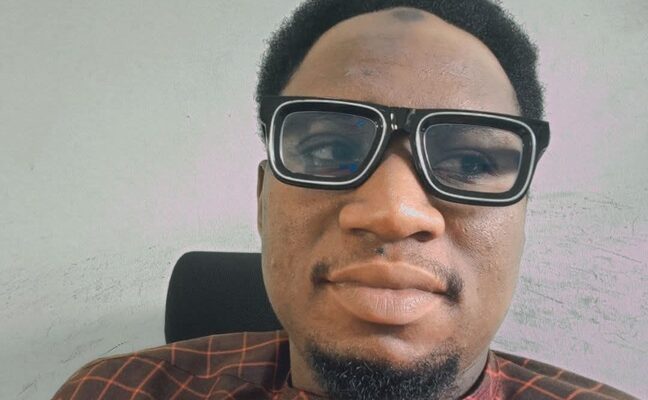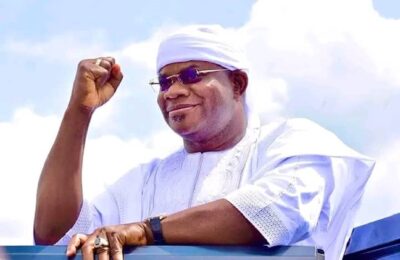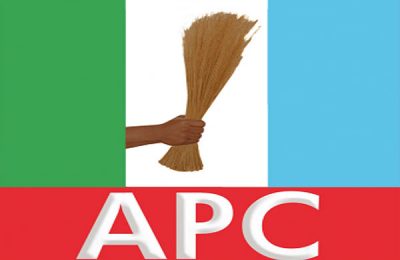I have intentionally stayed away from the growing debates surrounding the recent coalition led by the African Democratic Congress (ADC), which has stirred intense political conversations and raised various expectations ahead of the 2027 general elections. Many have described it as just another gathering of aggrieved politicians and as a founding member of the All Progressives Congress (APC), some might naturally expect me to dismiss it.
But as a Nigerian who believes in honest reflection and historical context, I feel compelled to share my thoughts not as a party loyalist, but as a concerned citizen who believes in national unity, equity and critical engagement.
Looking back at Nigeria’s democratic journey since 1999, it is evident that the presidency has rotated unevenly between the North and South. The Southern region has held the presidency for a cumulative 16 years; Chief Olusegun Obasanjo (8 years), Dr. Goodluck Jonathan (6 years), and now Bola Ahmed Tinubu, who is in his fourth year in office.
The North, in comparison, has had 10 years; President Umaru Musa Yar’Adua (2 years) and President Muhammadu Buhari (8 years). These statistics form part of the broader conversation about zoning, fairness and national balance. It is within this context that we must evaluate the strategy and potential impact of the ADC led coalition.
What if the Coalition Zones Power to the South?
If the coalition is truly interested in zoning the presidency to the South, the most unifying and strategic figure that comes to mind is Dr. Goodluck Jonathan. Though he has not publicly aligned himself with the coalition but undisputedly his name resonates across Nigeria’s political landscape. He enjoys goodwill in both the North and South and constitutionally, he is only eligible to serve one more term.
That alone makes him a viable compromise candidate. His candidacy may not trigger the usual succession fears since it comes with a “one-term guarantee,” which could attract a broad coalition of interests and significantly challenge both APC and PDP strongholds.
Peter Obi, on the other hand, represents a different force entirely. His 2023 performance was nothing short of remarkable. He mobilized millions, particularly among the youth and urban middle class, on the strength of accountability, reform, and hope. But Obi’s support base is emotionally charged and highly invested. Asking him to settle for a four-year term or worse, a vice-presidential slot may be interpreted as betrayal of trust especially from his followers.
If he’s eventually considered to take the lead, His emergence would mark a historic first for the South-East and reducing that symbolic victory to a transitional experiment would be politically unwise and unrealistic considering their neglect since civil war in 1967-1970. His followers see him as a generational leader, not a placeholder.
As for Rotimi Amaechi, he remains a strong political figure, especially from the South-South, but his recent posture appears more reserved. During his appearance on Channels TV’s Politics Today on July 3rd, 2025, he stated that he would not seek more than four years if opportuned. While that stance is logical and commendable, his momentum doesn’t currently match that of Jonathan or Obi. Still, Amaechi may be open to repositioning within a broader coalition but whether he can rally nationwide support remains to be seen.
What if the Coalition Turns to the North?
The idea of returning power to the North despite its historical dominance has merit in terms of electoral arithmetic. The North still holds a significant share of the voting population. But this move is not without consequences. Such a decision, especially coming right after Buhari’s eight years and with Tinubu still in office, could ignite strong southern resentment. There’s a real risk of voter apathy, protest votes, or even disintegration within the coalition ranks. Many in the South may perceive it as a political betrayal. Used and discarded!
That said, a well-structured North-South alliance could be formidable. For instance, a ticket with Atiku Abubakar as presidential candidate and Peter Obi as running mate would combine political experience with youthful appeal. However, such an alliance would face deep challenges. Would Obi’s base accept a secondary role after his 2023 momentum? Would southern leaders feel comfortable backing Atiku for a possible eight-year term, when they believe it’s their turn? These are not just strategic questions; they are emotionally charged and would require intense negotiations, compromises and trust commodities currently in short supply.
The APC’s Internal Challenges
As a loyal APC member, I must speak truthfully about the challenges within our party. President Tinubu’s leadership style is today seen as consolidation through absorption; what some describe as a “grab and weaken” strategy. While this has strengthened control within the party, it has also alienated key groups and stakeholders. Such a method might seem effective for party dominance, but it risks creating resentment and disengagement among loyal supporters, particularly at the state and grassroots level.
More critically, the economic hardship facing the country especially in the North is a pressing concern. Inflation, food insecurity, rising unemployment and the general cost of living have hit ordinary Nigerians hard. These are not abstract figures; they are real struggles in homes, markets, and communities. The North, which historically supported the APC, is now among the hardest hit. If the economic pain continues unchecked, it could severely undermine our electoral strength in 2027. I strongly urge President Tinubu to revisit and recalibrate his economic policies, not only to improve governance outcomes but also to restore the confidence of the Nigerian people, especially in the North.
In all, while I remain committed to APC, I believe that every serious political actor regardless of affiliation must look beyond personal or party interest and prioritize national unity, political fairness, and historical context. The ADC coalition, while still finding its feet, should not be underestimated. If they succeed in uniting key players and zoning power with wisdom and inclusivity, they could become a major force in 2027.
As a party, we must not ignore the signs. We must recalibrate, we must listen, and above all, we must lead with empathy. Nigerians are watching. The 2027 elections may feel far away, but they are much closer than we think. Yes, The power of incumbency may be real, but history particularly the 2015 defeat of a sitting president reminds us that it is not absolute.
President Tinubu must not allow himself to be insulated by sycophants or “yes men” who shield him from the reality on the ground. Nigeria is hurting. People are struggling.
The urgency now demands that Tinubu policies be reassessed, strategies be realigned, and empathy be restored. The future of APC and more importantly, the future of our country depends on it.
– Abdulkadir Bin ABDULMALIK, a political analyst writes from Lokoja, Kogi State and can be reach via abdulmalikabdulkadir@gmail.com




